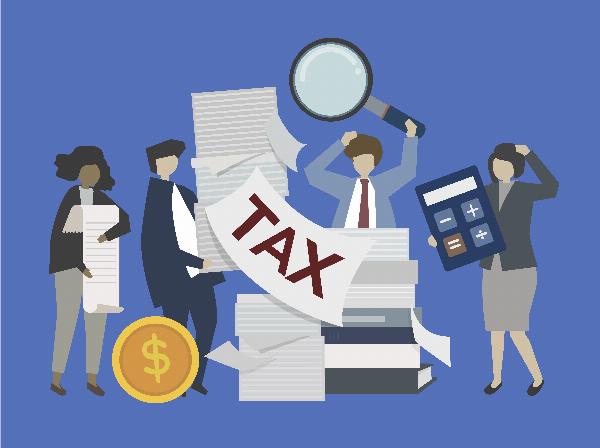Corporate Professional Tax: Balancing Compliance with Operational Efficiency

Strong 8k brings an ultra-HD IPTV experience to your living room and your pocket.
Today's corporate landscape is more regulated than ever, with stringent tax laws shaping how businesses operate across various states in India. One such regulation is the professional tax, a state-level tax imposed on salaried individuals, including professionals and corporations. Professional tax is unique across the country and varies from one state to another. It directly impacts the employees and businesses, as they are responsible for ensuring proper compliance.
In Jharkhand, professional tax compliance can present challenges and opportunities for organizations. Companies that can streamline the process while ensuring that they stay on the right side of the law have a chance to optimize their operational efficiency. This article dives deep into the intricacies of professional tax in Jharkhand and explores how businesses can effectively balance compliance with operational efficiency.
Understanding Professional Tax
State governments levied professional tax on individuals earning an income through salaries, practicing professions (like doctors or lawyers), or carrying on trade or business. This tax is deductible from the employee's salary and is deposited by the employer with the respective state government.
Each state has its own set of rules and regulations regarding professional tax, which employers are required to follow strictly to avoid penalties. In Jharkhand, this tax forms part of the broader regulatory framework that companies must comply with when operating in the state.
Key Features of Professional Tax in Jharkhand
- Applicability: Professional tax applies to individuals earning a monthly income, professionals such as doctors, lawyers, and accountants, and businesses operating within the state.
- Slab Rates: The professional tax in Jharkhand is divided into slab rates based on an individual's income. Higher income levels attract higher professional tax rates.
- Employer's Responsibility: Employers are responsible for deducting the professional tax from employees' salaries and ensuring timely payment to the state treasury. This involves maintaining accurate records, making deductions based on the applicable slabs, and remitting the tax before the due dates.
- Compliance Requirements: Jharkhand's professional tax law requires employers to register under the Professional Tax Act, deduct the appropriate amount from employee salaries, and file returns regularly. Any deviation or delay in payment can lead to penalties and interest charges.
- Consequences of Non-compliance: Non-compliance can result in penalties, with interest accruing on late payments. Moreover, continued neglect could lead to legal proceedings, hampering the company's reputation and financial stability.
The Impact of Professional Tax Compliance on Operational Efficiency
For businesses, ensuring compliance with professional tax regulations, like those in Jharkhand, is not merely a matter of staying on the right side of the law—it directly influences operational efficiency. Balancing tax compliance with day-to-day operations can be challenging, but it leads to several benefits when done right.
1. Reduction in Administrative Burden:
By automating professional tax calculations and deductions, businesses can reduce the time and resources spent on manual calculations, filing, and remittance processes. Many companies are integrating payroll management software that calculates taxes, including professional tax, in real time. This eliminates errors and ensures businesses meet compliance obligations without dedicating excessive resources to tax administration.
2. Minimizing Risk of Penalties:
One key benefit of staying compliant with the professional tax in Jharkhand is minimizing the risk of penalties. Penalties and interest can create a significant financial burden, especially for small and mid-sized companies. Efficient tax management systems, which automate payment reminders and return filing, help mitigate this risk. A penalty-free operation reflects a healthy financial structure, freeing up resources for core business functions.
3. Boosting Employee Satisfaction:
Compliance with professional tax regulations ensures employees don't face undue deductions or penalties, which can happen if their employer fails to comply with state laws. When employees see that their employer is prompt with salary deductions and tax remittances, it enhances their trust in the organization. This improves employee satisfaction and reduces the chances of grievances related to tax matters.
4. Better Financial Planning:
Consistent and correct tax payments allow businesses to better plan their finances. Professional tax compliance and other tax obligations enable businesses to forecast expenses, plan cash flows, and allocate resources efficiently. This, in turn, aids long-term financial stability and operational planning.
Strategies to Streamline Professional Tax Compliance
Balancing compliance with efficiency is essential for businesses to thrive. Here are some strategies companies in Jharkhand can adopt to streamline their professional tax compliance while ensuring they optimize their operations:
1. Implement Payroll Software
Investing in robust payroll management software can drastically reduce the administrative burden of tax compliance. These tools automate professional tax calculations based on the latest slab rates and ensure timely payment. Automated systems can also send reminders for filing returns, minimizing the risk of late filings and penalties.
2. Regular Training for HR and Finance Teams
Ensuring that HR and finance teams are up-to-date on the latest professional tax laws is crucial. Regular training sessions can help employees stay informed about any changes in state laws, including those related to professional tax in Jharkhand. This minimizes the chances of errors and ensures the company remains compliant with the latest regulations.
3. Use of Outsourced Payroll Services
Small and medium-sized businesses can opt for outsourced payroll services to manage tax compliance. Outsourcing can reduce the burden on internal teams and ensure the company complies with all state-level tax regulations. Professional services have the expertise and tools to handle tax matters efficiently, allowing businesses to focus on growth.
4. Conduct Periodic Compliance Audits
Regular audits of the company's payroll and tax compliance can identify discrepancies and areas for improvement. Periodic reviews ensure the company complies with professional tax laws while highlighting potential operational inefficiencies. Early identification of issues can prevent costly penalties and legal complications.
5. Leverage Cloud-based Solutions
Cloud-based solutions offer the flexibility to manage payroll and tax compliance from any location. Companies with multiple branches or remote teams can use cloud platforms to ensure consistent tax management across all locations. These solutions provide real-time updates, ensuring that professional tax calculations remain accurate and aligned with the latest legal changes in Jharkhand.
The Road Ahead for Professional Tax Compliance in Jharkhand
While the professional tax in Jharkhand is a relatively straightforward regulation, staying compliant requires diligent business effort. By adopting modern tools and strategies, companies can transform tax compliance from a cumbersome task into an efficient, automated process. Businesses that invest in efficient tax management systems minimize the risks associated with non-compliance and optimize their operations, freeing up resources for innovation and growth.
As tax regulations evolve, businesses need to stay proactive and ensure that their compliance mechanisms remain updated. Continuous process improvement, adoption of new technologies, and staying informed about changes in tax laws will remain critical to maintaining a competitive edge.
Conclusion
Compliance with professional tax laws is necessary in the corporate world, especially for businesses operating in regulated environments like Jharkhand. The challenges of professional tax in Jharkhand can be overwhelming if businesses fail to adopt efficient compliance strategies. However, companies that strike the right balance between compliance and operational efficiency can turn these challenges into opportunities for growth.
Businesses can achieve seamless compliance with professional tax regulations by leveraging technology, conducting regular audits, and ensuring that employees are well-trained in tax matters. This ensures that they avoid penalties and fosters a more transparent and trusting relationship with employees. Integrating compliance into the broader operational framework is key, ensuring that it enhances, rather than hinders, business growth.
Note: IndiBlogHub features both user-submitted and editorial content. We do not verify third-party contributions. Read our Disclaimer and Privacy Policyfor details.


